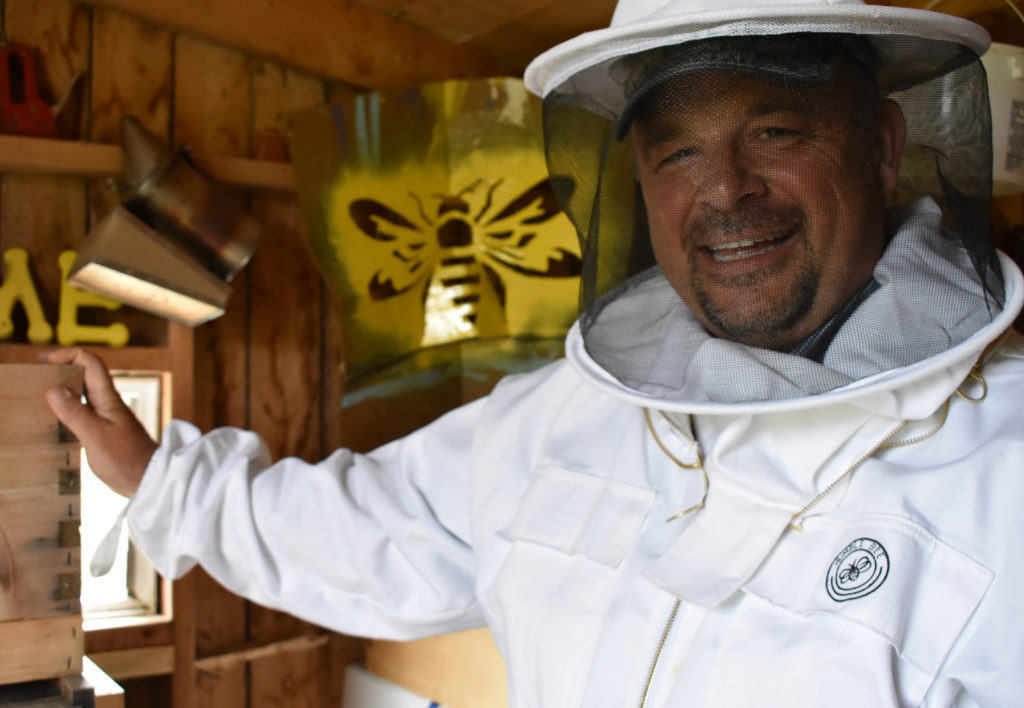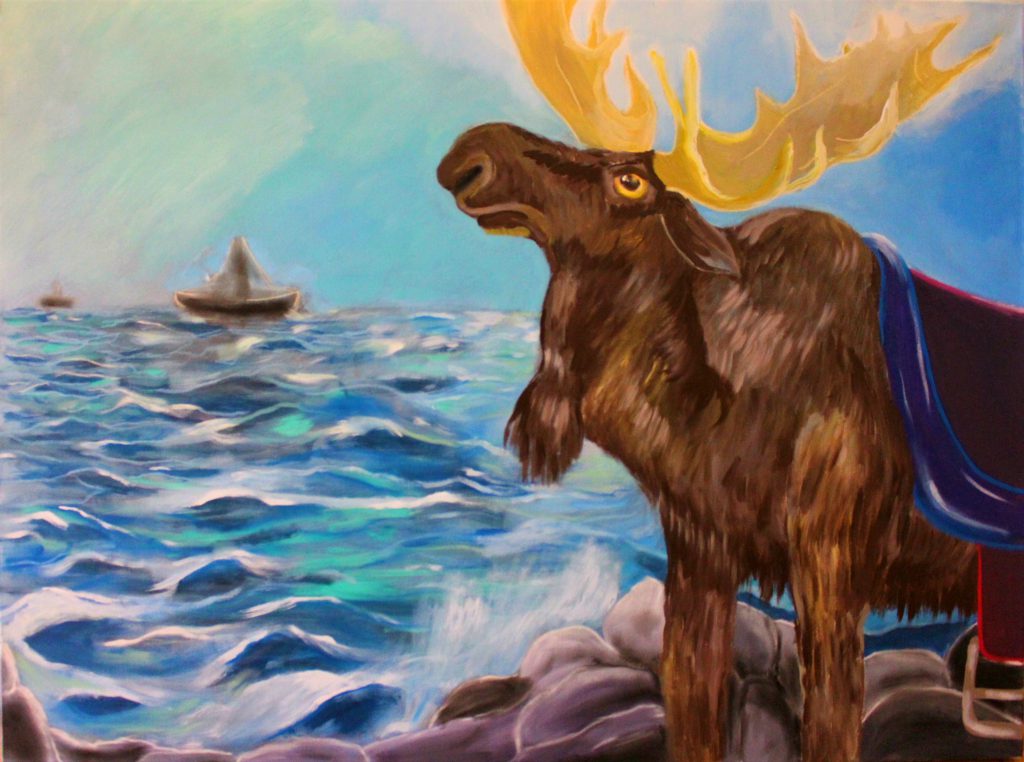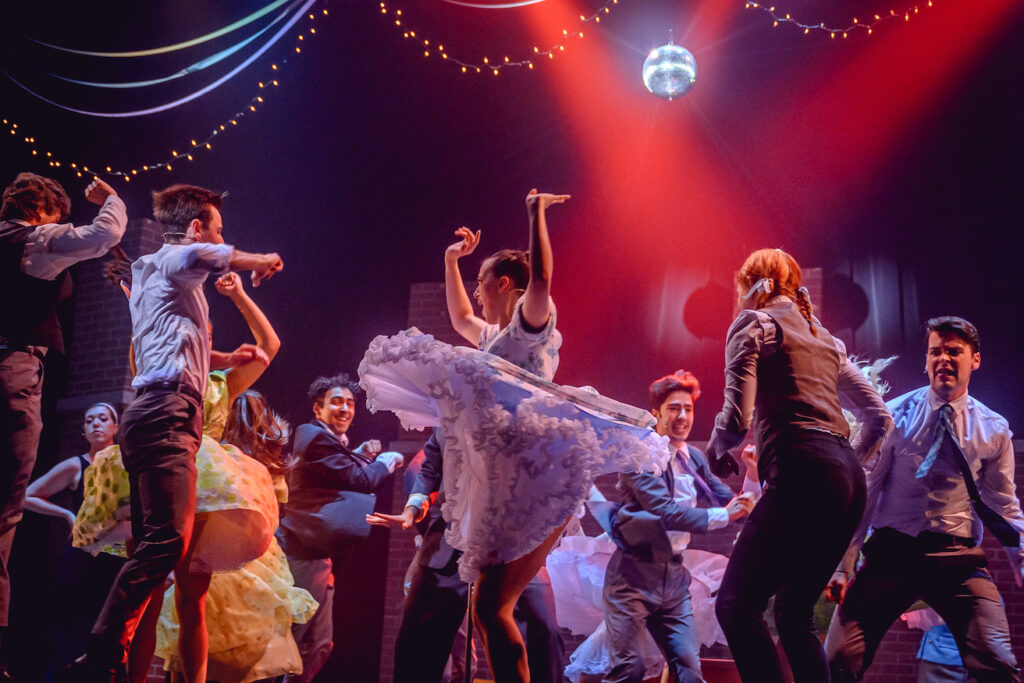Olá Portugal: Pam Morgan and crew tour The White Fleet Suite
May 2024
NQ caught up with Morgan in the Bairro Alto ditrict, downtown Lisboa, after Suite wrapped a series of performances along the Portuguese coast, to chat with the musician, composer, and vocalist of the celebrated Figgy Duff about this project – and a few other things she’s got on the go.
Can you tell me about the genesis of this project?
It’s a long story but I’ll try and make it fairly concise. When I first started my musical journey Art Stoyles was in Figgy Duff. Art knew more Portuguese tunes than he knew Newfoundland ones because he grew up learning from the Portuguese sailors on the waterfront. So I had an ear for the Portuguese tunes from a very early start. And then I was fascinated by the waterfront, as it was in those days with all the ships and the sailors and the exotic tabaco and the sights and sounds and smells was gorgeous. And then I met my partner in this project, Teó Cerqueira, and he introduced me to the music of Portugal, and I went to visit him for three months in the early 1980s; his band was the Portuguese equivalent of Figgy Duff, bringing the traditional music of Portugal forward to a new generation, same as we were doing at home, and they came to St John’s in the early 1980s as well for an international festival that Kelly Russell had organized. So all those things combined just made me love the Portuguese culture, language, music. And it kind of went dormant for a little while, I was doing other things, and Teó and I weren’t really in touch for a long time. But it never really left me. I was thinking about what I would lie to do next and I thought I would love to go to Portugal again, I was thinking about it, and thinking about that part of our history and culture which is often overlooked, since the White Fleet left in the 1980s, it’s like they vanished or something,
So I approached Teó with the idea of writing something that explored the connection between our folk music and Portuguese folk music. Because there really is a connection because we’re both seafaring countries, and we both have our culture and music shaped by the ocean, the perils of the ocean and the joys of it, and the hardships. We have a lot in common in the themes of our stories and songs. So I came over and did about a month of reserach.
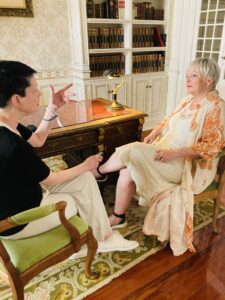
What was that process like?
I learned some songs and paired them with Newfoundland songs, I interviewed dorymen who had been to St John’s and that was really special – Jean Pierre Andirenux, whose passion is ships, he was a great help to me, and [a connection of his] assembled eight dorymen, and we recorded a couple of hours of conversation, of course I didn’t understand a word, Teó translated, and many of those stories made it into the piece. Little titbits of information, thngs that shaped a lyric here or a story there, it was invaluable. Then I commissioned Agnes [Walsh] to write a series of poetry, a lot of that became lyrics, a lot of it is spoken in the show. And then of course Dwayne Andews as musical director – the smartest thing I did was the people I brought in, a lot of elements, skill and passion from a lot of different sources. And it became something really special.
We have our memories of the White Fleet – do they have memories of us?
They were very animated. They have very fond memories. Not just the dorymen, but people I’ve encountered as well. One of the things that struck me the most and just kind of never really left me is a couple of times in talking with people about Newfoundland, I got the sense that of hurt or betrayal. I think that there was a great passion and camaraderie between [us], and I don’t think people fully understood that it wasn’t Newfoundland that kicked them out, it was Canada. That’s something whenever I encountered I wanted to explain it wasn’t us, we love you! But it’s very common the meet Portuguese people, especially on the coast, who have been to Newfoundland, and whose fathers and grandfathers have been to Newfoundland, who know all about Newfoundland, it’s Terras de Bacalhau, I mean there’s a lot of codfish here. There’s very few people who have never heard of Newfoundland. It’s part of their collective and social memory.
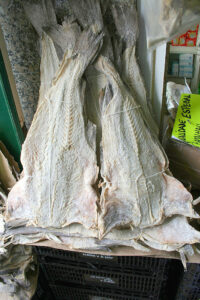
When you performed it in St John’s it was a bona fide hit. What’s the reception like here?
Absolutely amazing. Every night was a standing ovation, prolonged. The first night we hadn’t rehearsed our bows or whatever, we were trying to get it on stage, we left the stage on they were on their feet, clapping for a full ten, fifteen minutes. What they wanted was to come out for a bow I think. But we had gone down to the dressing room and were taking off our stage clothes and somebody came back and said b’ys you’ve gotta come back up because they’re still on their feet, they’re still clapping.
Do you see more performances in Newfoundland?
Yes. I’ve been over on this side of the water for months now, because I have another project I was working on in England, and while I was in England I found out we got Celebrate Newfoundland/Year of the Arts funding. Yes there will be a remount in the fall, and it will be an enhanced production. And that will be filmed, because the ultimate goal of the proposal was to make a documentary about the project, and I want to whole enhanced project to be filmed.
To me, speaking as a fan, I kind of feel like this was an inevitable project for you.
I think it is. I think you’re right. It was so natural. Teó and I have been friends for a lifetime, although we probably didn’t communicate for about 20 years. But we have the kind of relationship where you can pick it up. He was part of Newfoundland too, he spent his high school years in Lab City because his father came there to work for IOC, a lot of Portuguese people did. And then he came to MUN as a student. He really gets the connection, especially music.
What else do you have going on?
I have three simultaneous projects. The thing I was doing in England, I applied for money from [ArtsNL] to consolidate Figgy Duff’s legacy. Everything is scattered hither and yon, and there are people we’ve lost whose stories haven’t been told, like Neil Murray. All the crowd that that was around in those days, the intelligentsia artistic people, I wanted to capture that. That research has been interesting, I’ve been interviewing people that were in Lukey’s Boat, that was the launching of Figgy Duff, that whole story. I’ve done close to twenty interviews, people who were friends of the band, close to the band, the man who used to book the gigs, that’s what I was doing in England. That project is ongoing. And I have Wetland which is a, I won’t call it a musical because I don’t really like musicals, so I won’t admit to having written one. It’s based on a poem by Tom Dawe, The Frog Prince, the prince when he gets turned into a frog loves it in the wetlands and does not want to go back to the palace. It’s an environmental message, also a message of inclusion, and hope. There’s twenty songs, I call it neovo-retro, 1970s rock like Pink Floyd. and they tell a story – like Jesus Christ Superstar, and Tommy, a concept album is really what I’m going for. If it gets wings, I envision a production with Beni’s [Wonderbolt] Circus, and dancing – a spectacle.
This interview has been lightly edited for clarity.
(Top photo courtesy Jean-Pierre Andrieux collection)

